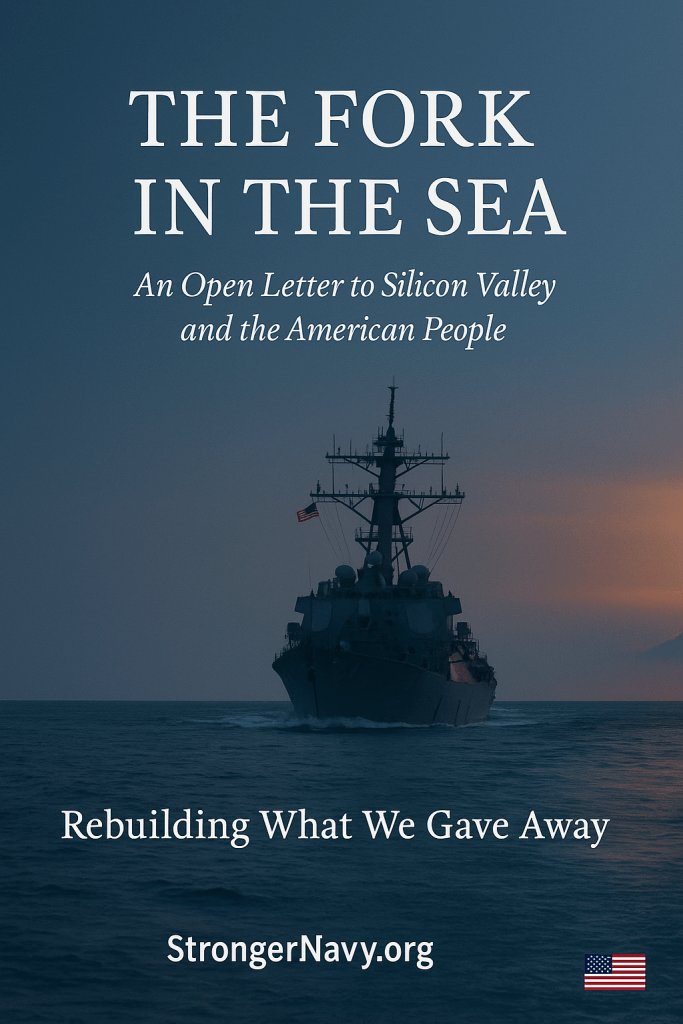
An Open Letter to Silicon Valley and the American People

If you’re confused by all this, you’re not alone. By “this,” I mean the tangle of headlines, policies, and talking points that have defined America’s relationship with China for the past decade — tariffs and trade wars, tech bans and chip controls, speeches about “decoupling,” and endless debates between the so-called hawks and doves in Washington. There’s a lot to unpack. The truth is, most Americans are burnt out. After years of rising prices, supply chain chaos, and political talk about tariffs and trade wars, people are tired of trying to figure out who’s right, who’s bluffing, and who’s actually working for them. They hear about new restrictions on chips, debates over TikTok, or tariffs on Chinese steel — but they don’t always see how any of it helps put food on the table or keeps the country safe.
Here’s the reality: for years, Washington and Wall Street were divided into two camps. The “China doves” believed that trade, investment, and partnership would bring peace—that if we did business together, China would grow more open and the world would grow more stable. The “China hawks”, on the other hand, warned that the Chinese Communist Party was using that same economic engagement to build leverage, dominate industry, and prepare for confrontation.
The tariffs you’ve heard about—the ones that started during the Trump administration and carried through in various forms—were part of that battle. They weren’t just about steel, aluminum, or semiconductors. They were about whether America would keep surrendering its manufacturing and shipbuilding capacity to a regime that has made no secret of its ambitions in the Pacific.
Most Americans didn’t pick a side. They were too busy working, paying taxes, and hoping someone in Washington would finally get it right. But the truth is, both parties let this happen. We were told that engagement meant peace—when in reality, it built dependency. And now, the same country we helped enrich is threatening our allies, our trade routes, and our future.
That’s why voices like Shyam Sankar’s matter. Over the past week, the Palantir CTO and Hudson Institute trustee laid out a hard truth that America can no longer ignore. In his essay “Why the China Doves Are Wrong,” he calls out a generation of business and technology leaders who misread Beijing’s intentions. These so-called “doves” believed engagement and profit could buy peace. They were wrong.
Sankar singles out Nvidia’s CEO, Jensen Huang, who recently said the future “doesn’t have to be all us or them; it could be us and them.” Sankar’s answer is clear: the Chinese Communist Party doesn’t believe that. Its rise depends on America’s decline—and our own money, technology, and industrial retreat helped make that possible.
He’s right. For decades, U.S. capital and know-how flowed into China, building the very industrial and military capacity that now threatens the free world. America’s overreliance on Chinese supply chains—from semiconductors to shipyards—has turned interdependence into a weapon aimed back at us.
Rebuilding our domestic base—our factories, shipyards, and maritime strength—isn’t nostalgia. It’s national security. Sankar’s warning echoes what many of us have been saying for years: hard power and industrial resilience are the foundation of peace.
At Americans for a Stronger Navy, we believe this isn’t just a policy debate. It’s a call to every citizen. This moment demands that Americans—not just policymakers—take responsibility, stand together, and act before it’s too late.
The Tide Is Turning
For years, Americans for a Stronger Navy has been saying what Shyam Sankar just put into print: we didn’t lose ground to China overnight—it happened one contract, one shipment, one investment at a time. When someone from inside Silicon Valley finally says it out loud, it means the conversation is shifting.
This isn’t about pointing fingers. It’s about facing facts. The same innovation hubs that built the digital future also hollowed out America’s industrial core. And now, even the insiders see it: the CCP isn’t looking for balance—it’s looking for dominance. Sankar’s words confirm what we’ve been warning all along.
Sankar didn’t pull punches. He wrote:
“The U.S. is partially to blame for turning China into a juggernaut. American companies have invested vast sums over decades to build China’s industrial base. … Chinese military contractors securitize weapons contracts in global capital markets, meaning that American pension funds and 401(k) investors have financed missiles aimed at U.S. ships.”
That’s the uncomfortable truth. We financed the very threat we now face. While many Americans were working hard and trusting their savings to grow, their own retirement dollars were indirectly funding China’s military expansion.
This isn’t a partisan issue or a Wall Street issue—it’s an American issue. And fixing it means facing it head-on.
Call to Silicon Valley and the Financial Sector
If there’s one thing Americans know how to do, it’s rebuild. We did it after the Great Depression, after World War II, and after every storm that’s hit this country. But this time, the rebuilding must start with those who helped hollow out the core—our own financial and tech elites.
Silicon Valley didn’t mean to weaken America. Wall Street didn’t set out to fund our rivals. But good intentions don’t excuse bad outcomes. The truth is, while innovators were chasing the next big breakthrough, and investors were chasing the next big return, our shipyards rusted, our supply chains moved offshore, and our industrial base became dependent on the very system now aligned against us.
That’s why this open letter isn’t just a warning—it’s an invitation. We need the same creativity, drive, and innovation that built the digital world to help rebuild the physical one. The next frontier isn’t in code; it’s in steel, in sensors, in shipyards, and in the men and women who keep the seas open and the nation free.
We’re calling on America’s tech and finance leaders to put their talent and capital back to work here at home—where it matters most. Invest in shipbuilding. Partner with maritime innovators. Reimagine logistics, automation, and infrastructure. Help America regain the ability to build, move, and defend.
Because the same companies that helped wire the world now have a moral obligation to help secure it. And if we do this right, we won’t just restore our strength—we’ll rebuild trust between Main Street, Wall Street, and the American people.
Closing: The Hard Truth and the Hope
The American people have every right to feel weary. We’ve been told for decades that global integration would make the world safer, that cheap goods would make us richer, and that innovation alone would keep us ahead. But somewhere along the way, we lost sight of something simple and sacred—the idea that America must be able to stand on her own.
Shyam Sankar reminded us that while our leaders talked about partnership, the Chinese Communist Party was planning for dominance. And he’s right—we built part of that machine. But now we have a chance to build something better: a stronger, more united, and more self-reliant America.
That’s why this isn’t just a letter to policymakers—it’s a letter to all of us. To the shipbuilder and the software engineer. To the machinist and the venture capitalist. To every citizen whose pension, paycheck, or passion helped shape this nation. The future of American power depends on our willingness to face what’s broken and fix it together.
Rebuilding our shipyards and restoring our maritime strength isn’t about preparing for war—it’s about securing peace. It’s about ensuring that no foreign power can hold our economy, our sailors, or our future hostage. It’s about remembering that deterrence isn’t aggression—it’s readiness.
So yes, Americans are tired. We’ve been misled, overextended, and divided. But fatigue is not failure—it’s a signal. A signal that it’s time to get serious, to get focused, and to get back to work.
That’s what Americans for a Stronger Navy stands for—peace through strength, transparency through accountability, and unity through shared responsibility. Together, we can rebuild the strength that keeps us free.
Let’s roll.

